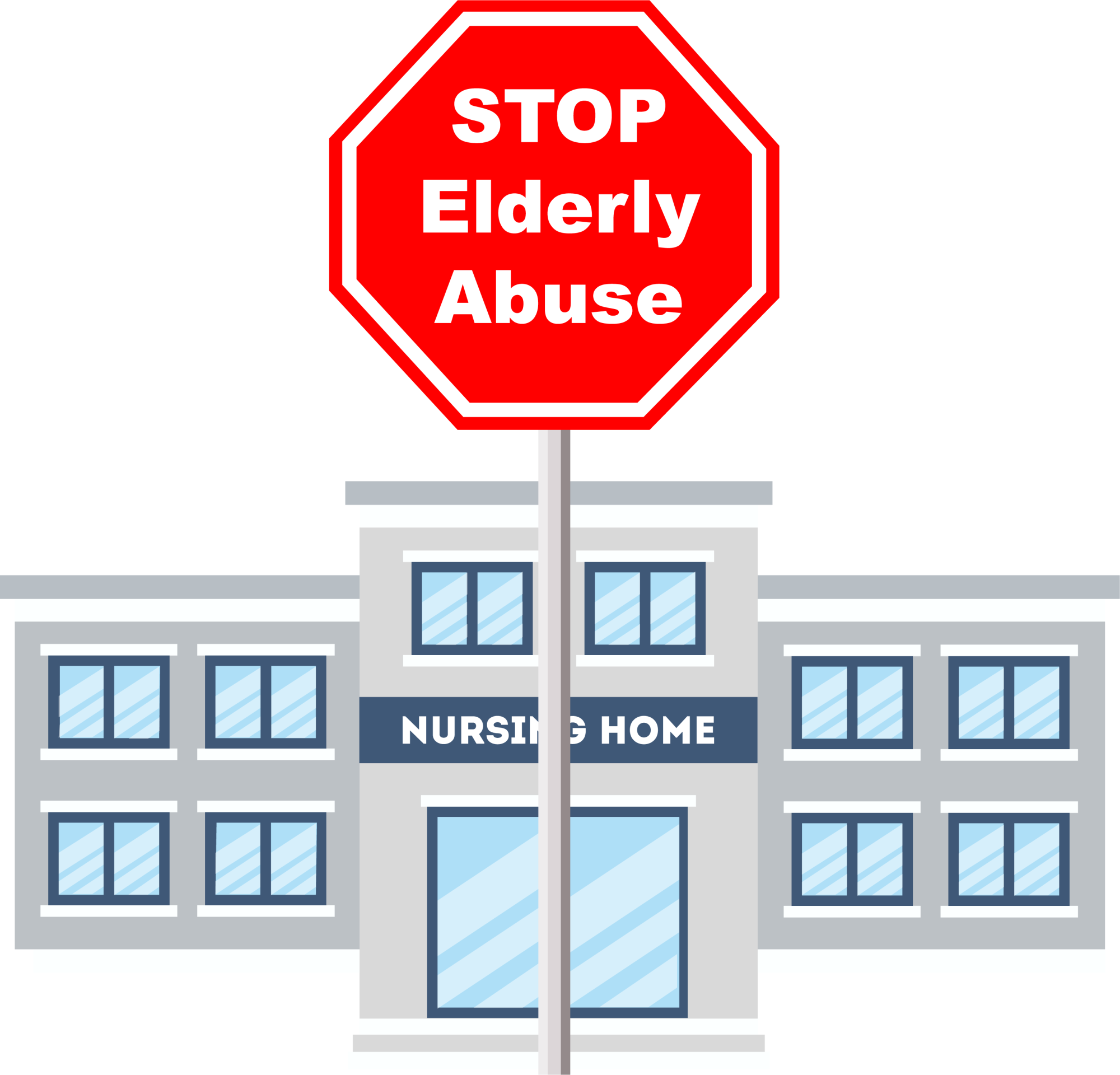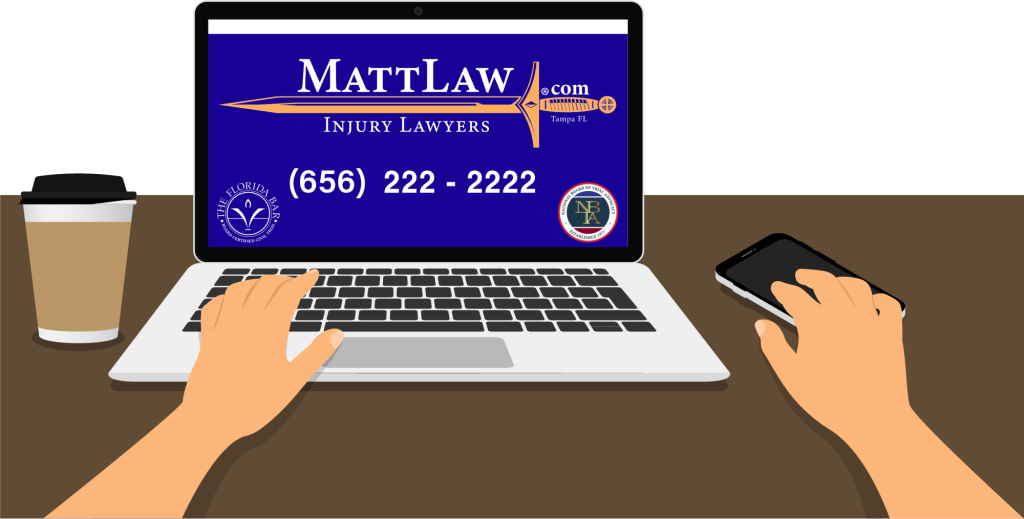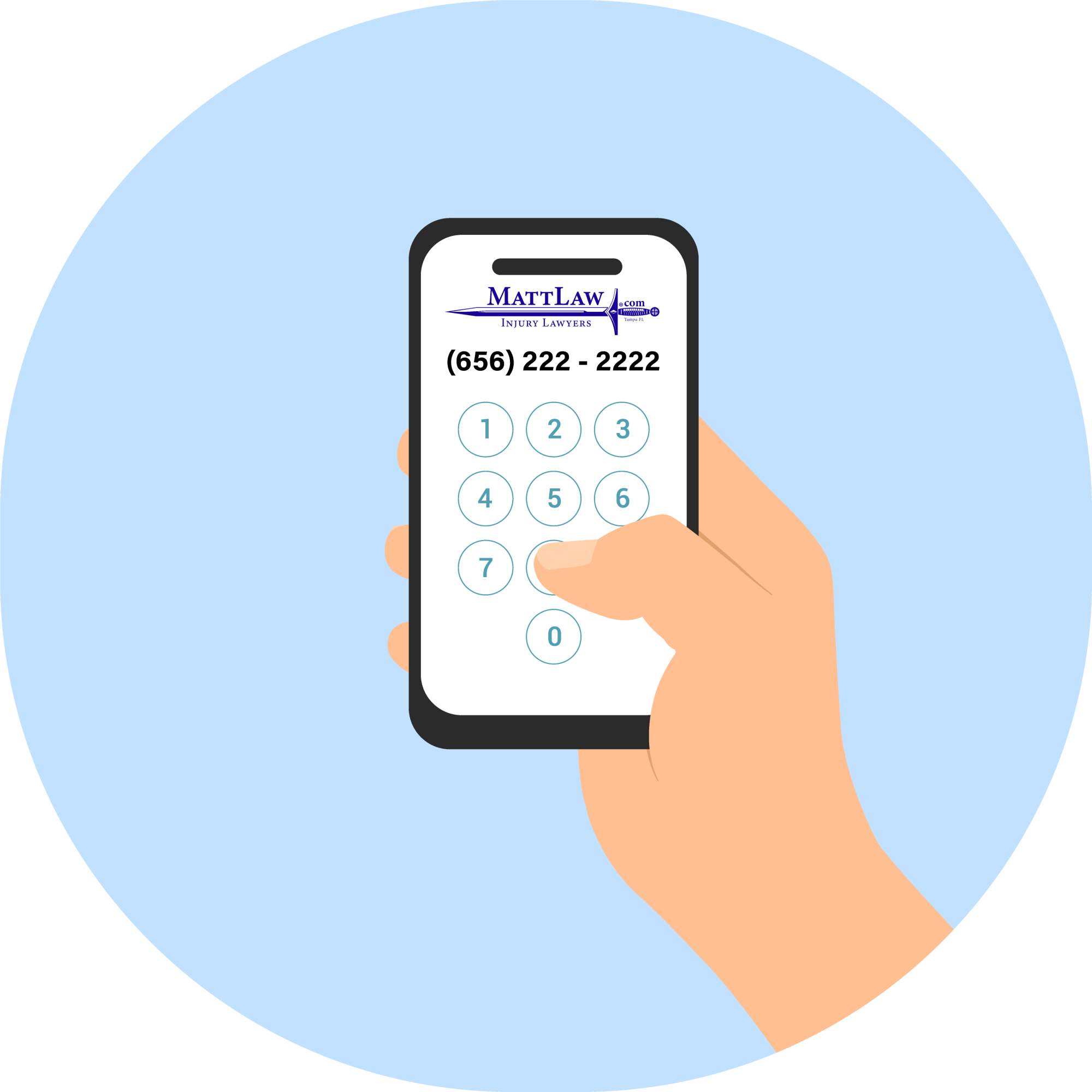Steps You Can Take to Prevent and Stop Nursing Home Abuse
Preventing Nursing Home Abuse and Neglect
Knowing the signs of nursing home abuse and neglect is the first step in preventing harm to a loved one.
This is a simple step by step checklist you can use to help keep your loved ones safe from abuse and neglect in a Florida or Georgia nursing home.
Knowing the patient’s bill of rights goes a long way to arm you to protect your loved one’s rights. If you don’t know what their rights are, you might not be as confident to speak up and enforce these rights.

Preventing Nursing Home Abuse and Neglect
Contents
Steps To Take Upfront To Protect Your Loved Ones From Nursing Home Abuse
Chapter #26: Preventing Nursing Home Abuse or Neglect
Chapter #27: How Do I Report Nursing Home Abuse or Neglect?
Key Information We Need To Investigate Your Nursing Home Abuse Case
Chapter #28: Getting Started: What MattLaw® Needs From You To Start a Nursing Home Abuse Claim
Steps To Take Upfront To Protect Your Loved Ones From Nursing Home Abuse
Chapter #26: Preventing Nursing Home Abuse or Neglect
While it may not be possible to prevent all instances of nursing home abuse or neglect, there are 6 steps that family members can take to help reduce the risk of injury to their loved one from abuse or neglect in a nursing home.
Here are the six steps you can take to avoid nursing home abuse:

These 6 steps include the following:
1). Research the facilities in your area to help identify the nursing home facility that best fits the needs of your loved one.
- The Centers for Medicare and Medicaid Services (CMS) maintains a website here that includes information on every nursing home in each state.
- Users of this website can get a feel for the quality of the nursing home facilities in any area of the state in which they have an interest.
- The CMS website uses a 1 through 5 star rating system for every nursing home.
- The overall rating is based on a nursing home’s performance in three areas, including:
- health inspections
- staffing
- quality measures
- Each of these 3 areas are also individually rated and the actual reports and findings can be downloaded and reviewed.
- The overall rating is based on a nursing home’s performance in three areas, including:
2). Visit your loved one as frequently as possible, and do so on different days and at different times.
- Doing this will help reduce any feelings of isolation on your loved one’s part, and make them more likely to share any concerns with you that they have.
- In addition, it will allow you to observe for any signs of potential abuse or neglect at various times of the day, including during therapy and meals, and to assess whether your loved one is receiving the necessary assistance with therapy, meals and other activities of daily living.
- You can and should speak with your loved one about whether their needs are being met.
3). Attend Care Plan Team Meetings.
- Care Plan Team Meetings are held periodically and a resident’s representative (usually a designated family member) is supposed to be informed of when they are to occur and invited to attend.
- It is important to attend care plan team meetings in order to:
- Be kept informed of your loved one’s condition and needs.
- To help demonstrate to the nursing home staff that you are involved and concerned with your loved one’s care and treatment.
- To help advocate for your loved one if any of their needs are not being met.
4). Get to know your loved one’s friends, the staff, the Director of Nursing, and the Administrator.
- Getting to know your loved one’s friends and everyone involved with providing or overseeing your loved one’s care is vitally important. It helps to ensure that they are all aware that your loved one has a concerned advocate who is watching over them.
- You should take the time to speak to all of the aforementioned individuals about whether your loved one’s needs are being met.
- This alone will go a long way to help to reduce the risk of your loved one suffering abuse or neglect at a nursing home.
5). Attend Resident Council Meetings.
- Each nursing home facility is required to hold monthly Resident Council Meetings, which are meetings where residents can voice any and all concerns that they have with their care and treatment at the nursing home facility.
- Attending these meetings will help you to stay current on any and all complaints and potential issues that may exist with regards to the care and treatment of all residents, including your loved one.
6). Review your loved one’s financial records at least quarterly.
- The National Consumer Voice for Quality Long-Term Care advises to look for warning signs of financial exploitation.
- Ensure the person helping the resident strictly follows the instructions with regards to the resident’s money.
- Confirm the facility issues a discharge notice due to non-payment.
- Look for unfamiliar charges to your loved one’s credit cards.
- Make sure you receive statements for credit card accounts.
- Look for accounts that are new, and not opened by you.
- Be aware when a caregiver asks for, demands, or takes money or gifts from your loved one.
- If any instances of financial exploitation are discovered, report the improprieties to your state ombudsman, licensing agency, adult protective services, and local law enforcement agency
7). Know the Patient’s Bill of Rights:
Florida has established a set of rights and protections for residents of nursing homes and long-term care facilities.
These rights are outlined in the Florida Nursing Home Residents’ Bill of Rights, which is designed to ensure the well-being and dignity of nursing home residents.
Here is a summary of some of the key rights and protections outlined in the Florida Nursing Home Residents’ Bill of Rights:
A: Dignity and Respect
Residents have the right to be treated with respect, dignity, and consideration. They should be provided with care that is responsive to their individual needs and preferences.
B: Privacy
Residents have the right to personal privacy and confidentiality in their medical and personal care.
C: Quality of Life
Residents are entitled to receive services that promote and enhance their quality of life.
D: Freedom from Abuse and Neglect
Residents have the right to be free from physical, mental, and emotional abuse, neglect, and exploitation.
E: Participation in Care Planning
Residents or their designated representatives have the right to be involved in the planning of their care and treatment.
F: Freedom of Choice
Residents can participate in decisions regarding their medical treatment and can choose their own personal physician.
G: Freedom of Communication
Residents have the right to communicate freely with others and to have access to individuals and services inside and outside the facility.
H: Visitation Rights
Residents have the right to receive visitors of their choice during reasonable hours.
I: Transfer and Discharge Rights
Residents can only be transferred or discharged under specific conditions, and proper notice and appeals processes must be followed.
J: Financial Rights
Residents have the right to manage their own finances and be informed about their financial affairs.
K: Grievance Process
Nursing homes must have a grievance procedure in place, and residents have the right to voice complaints without fear of reprisal.
L: Rights of Residents with Dementia
Special protections are in place for residents with dementia, including a prohibition on the use of chemical and physical restraints except in specific circumstances.
These rights are in place to ensure the well-being and safety of all nursing home residents.
If you or a loved one believe that these rights are being violated, you should contact the Florida Department of Elder Affairs or call MattLaw®.
Florida Statute 429.28 Resident Bill of Rights:
http://www.leg.state.fl.us/statutes/index.cfm?App_mode=Display_Statute&URL=0400-0499/0429/Sections/0429.28.html
Georgia nursing home residents have specific rights under Georgia laws.
These rights are designed to ensure residents are treated with dignity and respect.
A: Quality of Care
Residents have the right to receive proper medical care, nursing care, and rehabilitation services based on their individual needs.
B: Dignity and Respect
Nursing home residents have the right to be treated with respect and dignity, including respect for their personal preferences.
C: Privacy
Residents have the right to privacy, including the privacy of their medical and personal records.
D: Participation in Care Plan
Residents or their designated representatives have the right to be involved in their care plan, including decisions about their medical treatment and medications.
E: Freedom from Abuse and Neglect
Residents have the right to be free from physical, verbal, mental, and emotional abuse, as well as neglect.
F: Freedom of Communication
Residents have the right to communicate freely with people inside and outside the facility, including the right to have private conversations.
G: Visitation Rights
Nursing homes must allow residents to have visitors, subject to reasonable restrictions for the health and safety of residents.
H: Religious Freedom
Residents have the right to practice their religion and attend religious services.
I: Complaints and Grievances
Residents have the right to voice complaints and concerns about their care without fear of retaliation.
J: Transfer and Discharge Rights
Residents have protections against unfair or improper transfers or discharges from the facility.
The Georgia laws governing Long-Term Care Facilities: Residents’ Bill of Rights can be accessed here:
https://rules.sos.ga.gov/gac/111-8-50
Report Nursing Home Abuse
Chapter #27: How Do I Report Nursing Home Abuse or Neglect?
What to do when you see nursing home abuse:
Reporting nursing home abuse comes back to the popular adage: “If you see something, say something.”
We recommend that you document everything you see, as soon as you suspect nursing home abuse. Begin recording instances of the resident’s living environment, physical condition, and mental state. It is not always easy to identify the root cause of neglect, particularly when a resident is unable to communicate clearly. It is important to gather as much information as you can.

Report nursing home abuse as soon as possible. You may do this by contacting your local authorities, the eldercare company, the resident’s primary care physician, or even emergency medical services in the most severe cases.
Get your nursing home abuse case started today.
Reporting abuse can help prevent others from becoming a victim.
Contacting a MattLaw® nursing home abuse attorney is the next step in seeking justice from nursing home abuse.
Contact MattLaw® today at (813) 222-2222 to learn more about the rights of you and your loved ones.

Key Information We Need To Investigate Your Nursing Home Abuse Case
Chapter #28: Getting Started: What MattLaw® Needs From You To Start a Nursing Home Abuse Claim
What happens during my free nursing home abuse consultation with MattLaw®?
During your free consultation, we want to learn as much as we can about your case.
We will discuss the care that was given, or not given, to your family member. We want to know what you saw.
We want to know about the care or problems in the nursing home.
We will try to piece together the various health care facilities and doctors who provided care for your loved one.
We will talk about how the nursing home’s actions or inactions caused harm.

We will ask you about the following:
- Who was involved and the names of the facilities where the problems happened?
- What happened, abuse, neglect, what did you see?
- When did the abuse occur?
- How long did the abuse or neglect go on?
- What was the age of the plaintiff (injured party) at the time of the abuse?
- What pre-existing health conditions led to the need for the nursing home?
- What kind of care was needed for the resident?
- What type of facility was needed?
- How many people were responsible for caring for the plaintiff?
- How did the caregiver’s violation of the duty cause the injury?
- What details are contained or missing from the plaintiff’s medical records?
- Who can speak about the plaintiff’s health and condition before and after the injury?
- What did you see, hear, or learn about your loved one’s care and treatment?
We want you to share with us as much information as you can about the case and your concerns.
Please use this link to fill out our online form to see if we can bring a case for you!
Getting Your Nursing Home Abuse Case Started With MattLaw®
The bottom line is MattLaw® wants to know as much as possible to get started on your nursing home abuse or neglect case.
The more information we have, the quicker we can get started working on your case.
We want to know who might be a witness to prove abuse.
We want to know what proof or evidence we can show to prove damages.
We want to know what facilities and sub contractors were actively involved in the abuse, so we can determine how collectable they are so that when we prove the abuse, we can recover the damages.
If you have questions, please do not wait.
Contact MattLaw® today to discuss your nursing home abuse case at (813) 222-2222. The consultation is free and 100% confidential. If we can accept your case, we will get to work immediately without any upfront cost to you.
Related Articles
- The Ultimate Guide to Nursing Home Rights
- The Warning Signs of Nursing Home Abuse
- What Damage Can Be Recovered From Nursing Home Abuse and Neglect?
- Statues of Limitations on Nursing Home and Adult LIving Facility Abuse and Neglect Cases
- What is the Difference Between a Nursing Home and an Assisted Living Facility?
- Hiring a Lawyer for a Nursing Home Case, How does the Mattlaw Contingency Fee Contract Work?
- Preventing Nursing Home Abuse and Neglect
- Defining the Standard of Care for Nursing Homes and Adult Living Facilities
- Filing a Nursing Home Neglect and Abuse Lawsuit
- Other Sources of Information to Help You and Your Family

